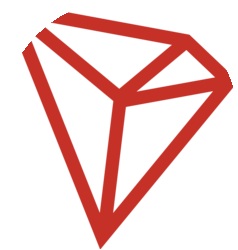Tron Outpaces Ethereum in Revenue, Projected to Become Most Profitable Blockchain of 2024
TRX/USDT
$115,098,670.07
$0.2794 / $0.2751
Change: $0.004300 (1.56%)
+0.0047%
Longs pay
Contents
- Tron has recently surpassed Ethereum in terms of revenue, highlighting its increasing dominance in the blockchain sector.
- Currently, Tron has generated approximately $435 million in fees over the past 90 days, compared to Ethereum’s $364 million.
- Justin Sun, the founder of Tron, noted on August 15 that Tron’s protocol revenue outstripped Ethereum’s by 50% in the last month.
Discover how Tron has managed to surpass Ethereum in revenue and what this means for the future of blockchain technology.
Tron Overtakes Ethereum in Revenue Generation
Recent data from Token Terminal has revealed that the Tron network has outpaced Ethereum regarding revenue generation. Over the past 90 days, Tron accumulated approximately $435 million in fees, significantly higher than Ethereum’s $364 million. This notable performance difference highlights Tron’s rapid growth and increasing market relevance in the blockchain industry.
Justin Sun’s Projections and Investor Benefits
On August 15, Justin Sun spotlighted this achievement on social media, claiming that Tron’s protocol revenue was 50% higher than Ethereum’s in the last 30 days. Sun projected that if this upward trajectory continues, Tron’s protocol revenue could surpass $2 billion by the end of 2024, potentially positioning Tron as the most profitable blockchain worldwide. He further clarified that all revenue generated is distributed fully to TRX holders, which underscores Tron’s commitment to its investor community.
Stablecoin Dominance Driving Revenue Growth
A major factor in Tron’s revenue success is its stronghold in the stablecoin sector, particularly with Tether (USDT). The network recorded $1.25 trillion in USDT settlement volumes during the second quarter of 2024. For context, this figure represents nearly a third of Visa’s annual settlement volumes, showcasing the substantial role stablecoins play in driving Tron’s financial growth. Currently, half of all USDT in circulation is on the Tron network, with USDT constituting about 70% of the entire stablecoin market.
Innovative Transaction Fee Solutions
In an effort to maintain its edge, Tron plans to introduce a new feature by year-end 2024. This upcoming solution will allow users to pay transaction fees using stablecoins like USDT, potentially removing the need for holding TRX for transactions. Justin Sun believes this innovation will streamline blockchain transactions, especially for large enterprises, thus driving broader adoption of blockchain technology. Initially, this feature will launch on the Tron network, with plans to later expand it to Ethereum and other Ethereum Virtual Machine (EVM) -compatible chains.
Challenges and Market Dynamics
Despite these impressive revenue figures, Tron faces challenges in other metrics. According to DefiLlama, the Total Value Locked (TVL) on the Tron network fell to approximately $7.6 billion in June 2024, marking a six-month low. Although there was a moderate recovery in July, with TVL rising to $8.7 billion, it has since reverted to around $7.4 billion. Interestingly, this decline in TVL coincided with a noteworthy rise in the price of TRX, jumping by 9.5% in June 2024, highlighting the complex dynamics at play in Tron’s market performance.
Conclusion
In summary, Tron’s recent revenue achievements signify its growing importance and competitiveness in the blockchain landscape. While the network faces challenges like fluctuating TVL, its strong stablecoin performance and upcoming innovations may provide it with a sustainable growth trajectory. As we move towards the end of 2024, it remains crucial to watch how these developments unfold and impact the broader blockchain ecosystem.
Comments
Other Articles
Bitcoin Price Analysis: Will the Uptrend Continue?
2/8/2026
Ethereum 2.0 Update: How Will It Affect the Crypto Market?
2/7/2026
The Coming of Altcoin Season: Which Coins Will Stand Out?
2/6/2026
DeFi Protocols and Yield Farming Strategies
2/5/2026
